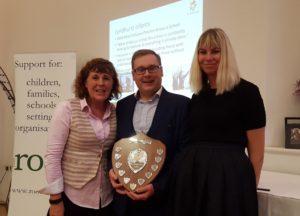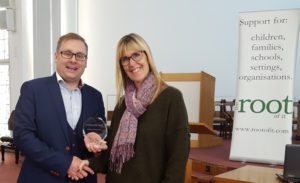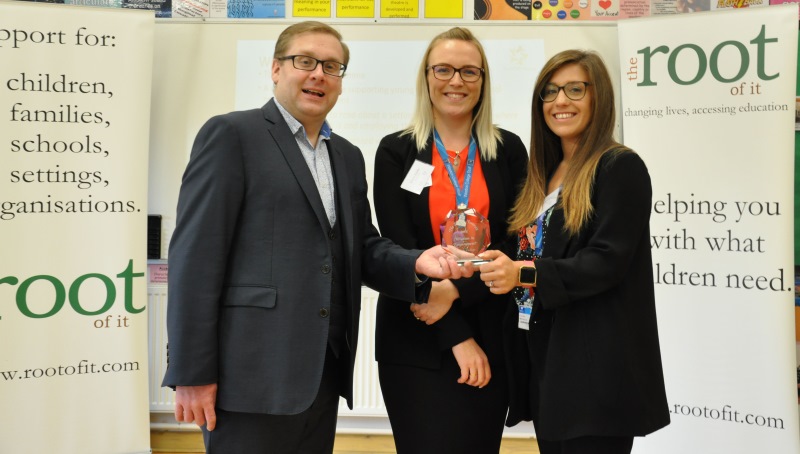Most Inclusive Practice Across a School
Lyndhurst First School

Judges comments: What strikes us is that this school is constantly looking to improve at everything it already does. There were parts that suffered due to lack of data, but a thorough submission showing the engagement with school, pupils and families.
Context
“This is a very inclusive school. Staff know the children and families well and have an inclusive approach.
It does all that it can to develop children’s academic and social education.” WSCC Inclusion Review Feb 2018
We are an inclusive 4 form entry urban coastal school in an area of deprivation (lowest 10%) with an SSC for children who have a diagnosis of ASD. The aim of the SSC is to enable children to explore their potential without limits, in a caring and empathetic environment. The children are from a wide surrounding area and work with dedicated staff with a wealth of knowledge and experience in the field of social communication conditions/ASD. The children that attend the SSC are not able to cope with the full time social demands of mainstream schooling, so their learning expectations are met in Bumble Bee class.
Most Innovative Intervention
Batchley First School
Judges comments: An intervention that should be standard in many areas across the country, clear evidence of impact.
Context
Batchley First School is a mainstream school for Nursery to Year 4 in Redditch, Worcestershire. We have always had a very inclusive culture and reputation and work with children and their families. We have many staff who have expertise in many areas of inclusive practice, as well as being commissioned by Worcestershire to provide Early Years SEN provision for Redditch and Bromsgrove and Early Years Speech and Language for Redditch, Bromsgrove and Kidderminster.
Inclusion in Further Education
Kirklees College

Judges comments: It was a delight to read your entry, you have backed it up with clear data. It would have been nice to understand more about your identified weaknesses and deficits and how you plan to address them too.
Context
Kirklees College in West Yorkshire serves an area of significant deprivation and offers a ‘second chance’ and typically ‘only chance’ to young people who have not achieved at school or who have been excluded.
Inclusion in Employment
Weston College

Judges comments: It was impressive to read about a setting putting their money where their mouth is and employing their former students. The judges were impressed with the use of apprenticeships, the support and sustainability of the model. It will be interesting to hear how a new leader changes this programme.
Context
Weston College is an Ofsted outstanding college of further and higher education in Weston-super-Mare. It provides education and vocational training to nearly 30,000 learners across the country.
When the College began its provision for learners with SEND in 1981, it lacked visibility, being disconnected from the main site with just eight enrolments. This has grown to 1078 Further Education learners (502 with High Needs) and 153 Higher Education learners receiving various levels of learning support within the College. Currently, the College is the largest provider of Additional Learning Support and High Needs funding in the country.
In 2013, the College was rated ‘Outstanding’ by Ofsted. In 2015, the College was judged to be both the College of the Year and Overall Further Education Provider of the Year at the Times Educational Supplement Further Education (TES FE) awards.

